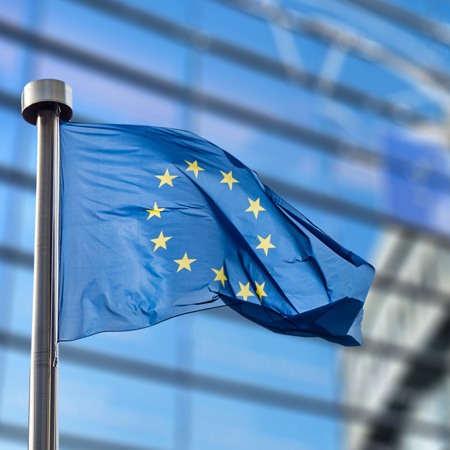
6 December 2017
Recent Developments
Brexit preparation for EMA and pharmaceutical companies
On 20 November 2017, the EU Council announced that Amsterdam will be the new location for the European Medicines Agency (EMA) after the UK will withdraw from the European Union. Preparing for the consequences of the Brexit, such as the relocation, is not only a significant matter for the EMA itself, but equally important for companies and other private parties. Therefore, on 28 November 2017, the EMA published a guidance paper to help pharmaceutical companies prepare for the UK´s withdrawal from the EU. The guidance takes as a starting point that the UK will become a third country as of 30 March 2019. According to the regulatory requirements with regard to the marketing of both human and veterinary medicines applicable in the EU and the EEA, the marketing authorisation holder for medicinal products (MAH) must be established in the EU or the EEA. For centrally authorised medicinal products the MAH established in the UK will therefore need to transfer its marketing authorisation to a holder established in the EEA in order to continue to market its products in the EEA after Brexit. Furthermore, for the marketing of a medicine in the EU/EEA it is required that some activities, such as the activities relating to pharmacovigilance or batch release, are performed in the EU (or EEA). For the continued marketing of medicines in the EEA after this so called “cut-off” date of 30 March 2019 companies should already start preparing for the application for changes to their marketing authorisation. The EMA guidance document outlines the practical and simplified requirements that companies should follow.
Commission adopts new GMP guidelines for advanced therapies
On 22 November 2017, the European Commission adopted new Guidelines on Good Manufacturing Practice (GMP) specific to Advanced Therapy Medicinal Products (ATMP) (the "Guidelines"). ATMPs are medical products for human use based on genes or cells that offer potentially ground-breaking opportunities for the treatment of injury and disease, particularly in cases of severe, untreatable or chronic diseases which do not respond adequately to conventional treatments. The new Guidelines, developed after extensive consultation with stakeholders, the EMA and competent national authorities, adapt the GMP requirements to the specific characteristics of ATMPs and address novel scenarios such as decentralised manufacturing, automated production, and reconstitution of ATMPs. The Guidelines take a risk-based approach, allowing manufacturers some flexibility in their processes and control systems, depending on the level of risk. In addition, the Guidelines describe the traceability data that ATMP manufacturers should keep for 30 years in accordance with Article 15 of the ATMP Regulation.
Read more
Pharmaceutical sector inquiry launched by French competition authority
On 20 November 2017, the French competition authority (Autorité de la Concurrence) launched a sector inquiry into the functioning of competition in the pharmaceuticals and medical biology sectors. In particular it will look at the distribution of pharmaceuticals and their price regulation mechanism, as well as business development opportunities available to pharmacists. In an earlier sector inquiry in 2013, the Autorité found an imbalance in the relationship between pharmaceutical companies and distribution intermediaries such as wholesale distributors, purchasing group networks and pharmaceutical purchasing organisations regarding the negotiation of the purchase price of pharmaceuticals that are not reimbursed and for which the prices are not set in the legislation. It appeared that laboratories had adopted a strategy of not giving significant discounts to intermediaries and of favouring direct sale to pharmacies. The current sector inquiry will examine whether the economic and competitive balance of the pharmaceuticals distribution chain changed, especially regarding the specific role played by intermediaries on the market and sale price dynamics.
In his opinion of 21 September 2017 the Advocate General Saugmandsgaard Øe concluded that information on the safety of medicinal products without any reliable scientific evidence to support the allegation can be considered misleading and restrict competition. The case concerned the Italian subsidiaries of Hoffmann-La Roche (Roche) and Novartis. Roche developed two medicines from related active substances, Avastin for cancer treatment and Lucentis for the treatment of ophthalmological conditions. In the period between the granting of the market authorisation for Avastin and that for Lucentis a practice developed whereby medical practitioners prescribed Avastin in lesser dose for the treatment of ocular pathologies. This so-called “off-label use” spread worldwide and continued after the grant of the marketing authorisation for Lucentis, because of the substantially lower treatment costs. In 2014, the Italian competition authority found that Roche and Novartis colluded to discourage the off-label use of Avastin for ocular pathologies by way of communicating to third parties the lesser safety of this medicine by comparison to Lucentis, since this communication was not based on any reliable scientific evidence. According to the AG such practices, where those allegations are misleading, constitute a restriction of competition by object and are prohibited under the cartel prohibition.
Contact
The Houthoff EU team is available at eu-office@houthoff.com or +32 (0)2 507 98 00.




